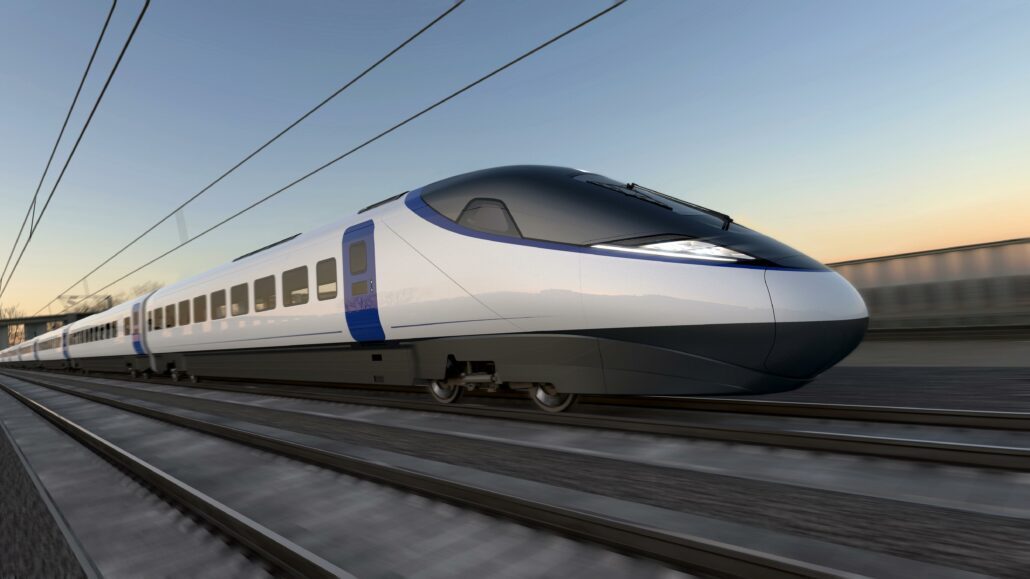
From the way we build to the way we travel, our decisions can drive us to net zero | By Mark Fenton, HS2.
OPINION | Climate change is a global threat, one that no single country, government or corporation can resolve. In the UK, we’ve committed to reaching net zero emissions by 2050, however, while the energy and business sectors have made huge strides to decarbonise since 1990 – reducing emissions by 66% and 42% respectively – the transport industry has stalled, managing just an 11% reduction in the past 33 years[1]. As we build the UK’s new high-speed railway, we’re focused on behaviour change, empowering our workforce to build HS2 in a greener way and encouraging our future passengers to make greener decisions, to forgo planes and cars for zero-carbon travel. Crucially, individuals must feel that they can make a difference and understand the positive impacts of their collective action, whether it be in the machinery they procure, how they act on site, or the journeys they take.
Our teams at HS2 Ltd are working alongside our contractors and industry partners to promote innovation in cleaner construction methods, including finding ways to reduce our reliance on diesel-powered equipment. Nineteen of our sites are already diesel free, achieved through the use of hydrogen technologies, electric powered machinery and renewable energy. We have ambitious targets, and recently published our ‘Diesel-free Plan: Building a net zero future’ to explain how the project will continue on its journey to achieve 100% diesel-free construction sites by 2029.
More widely, our Net Zero Carbon Plan outlines how we intend to achieve net zero carbon emissions as an organisation by 2035, a full 15-years ahead of the schedule set by Government[2]. This includes cutting carbon through design, cutting emissions from concrete and steel, introducing eco-friendly features into structures such as stations, and looking at ways to capture and store carbon emissions using nature-based interventions such as planting new trees to absorb carbon dioxide.
The biggest legacy HS2 will leave is one of high-speed, zero-carbon travel, with the new railway set to serve hundreds of thousands of passengers, every day, for the next century. These fast and frequent connections will remove polluting vehicles from our roads and reduce the demand for domestic air travel, creating faster links between London, Birmingham and Manchester to Glasgow and Edinburgh (HS2 trains will connect to the conventional rail network from the North West to Scotland). It’s worth confirming that high speed trains will run on electrified tracks, powered by renewable energy sources, providing true zero-carbon transport.
By opening up so much extra capacity on a new dedicated network, taking hundreds of long-distance rail services off the Victorian railway, HS2 will also create space for more local rail journeys as well as additional freight trains. For consumers, this will mean more rail services to choose from, and for businesses, more scope to move goods by rail, taking thousands of HGVs off our roads every year. Enabling people to use more sustainable modes of travel is a core part of the Climate Change Committee’s scenarios for net zero, with its models assuming that between 5-8% of car-kilometres can be switched to public transport by 2050.
As individuals, we have different capabilities and varying capacities to contribute to net zero, but crucially we can all contribute – it’s important that we all play our part. In the UK, 88% of people would like to make more sustainable choices, but 88% also feel it’s too hard to make sustainable choices because of high costs, inconvenience, limited knowledge or other barriers[3]. At HS2, we’re committed to removing those barriers, whether it be through staff training and initiatives as we build HS2, or by opening up more, greener travel choices for passengers once the railway is complete. We’ve partnered with The Carbon Literacy Project to equip our staff with the knowledge and motivation to reduce carbon emissions and we’re recognised as a Carbon Literate Organisation.
In the face of such a monumental challenge, we must all work together to deliver the best railway in the best way, empowering those around us to make the decisions that will drive us to net zero.
By Mark Fenton, Carbon Manager, High Speed Two Limited.
*See all recent Climate Perspectives editions here.
[1] 2022_UK_greenhouse_gas_emissions_provisional_figures_statistical_summary.pdf (publishing.service.gov.uk)
[2] https://assets.hs2.org.uk/wp-content/uploads/2022/01/25357_HS2_NetZeroCarbonPlan_CS1656_Final_InteractiveWeb.pdf
[3] The Behavioural Insights Team (2023) How to build a Net Zero society, https://www.bi.team/wp-content/uploads/2023/01/How-to-build-a-Net-Zero-society_Jan-2023.pdf